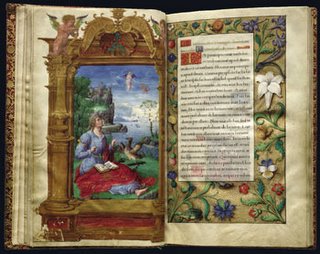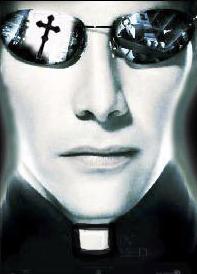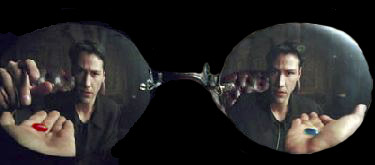It's in the Book, and...

I see survey after survey of church-going folks who just don't know their Bibles. I know more and more liturgical church-going folks who not only don't know their Bibles, they don't know their Tradition either.
I gravitate towards material that some consider obscure (ancient monasticism and the third century Christian catechumenate) because the ancients seemed to have a way of passing on the content and behaviors of the faith better than our 'Purpose Driven' modern faith does (not that there's anything wrong with that--many churches have no purpose at all, other than to increase butts and bucks).
So what is the answer in our pomo (postmodern) universe? Where are the mystagogical teachers like St. Cyril of Jerusalem?
I ask these questions because I am truly hopeful that there are answers. Neophytes?




Post a Comment
8 Comments:
PS
'Mystagogy' means the study of the Sacraments (or mysteries)...
I think you might be right. The scripture is essential, because it is foundational, but what it means and has come to be to the church through tradition and history is practical and necessary in order to express ourselves in worship and in our lives together. I know the scripture, fairly well, but I don't know why I'm an Episcopalian (Anglican, orthodoxian, Catholic, Methodist, Protestant). There seems to be a lot of official level confusion here. Good luck in your quest to bring clarity here.
I have encountered a few good teachers of tradition who have passed on their enthusiasm to willing souls. But based on limited experience with my friends and acquaintances, it seems my generation wants little to do with religious "tradition" in the first place, so passing it on in any meaningful way is tough.
Jamie,
What did you see in Tradition?
WIGIAT,
Why have you stopped reading to feed your soul? What is enriching about the Greek?
Question: What is the Word of God?
Answer: The holy Scriptures of the Old and New Testaments are the Word of God, the only rule of faith and obedience.
Do you like that Father? It brings back memories.
Good memories or bad? Catechesis is a good thing! We need more of it--so do our kiddos.
I think the post I was writing disappeared into cyberspace, so I'll try again and hope I'm not posting twice. Father Neo asked, "What did you see in tradition?" First of all, I have to admit that I am woefully ignorant of Tradition and would not be capable of holding up my end of a conversation with someone who had spend time reading the Church Fathers or who had done extensive reading on sacramental theology, etc. That being said, I have a (partially) fundamentalist Christian background, which focused on a person "getting saved" and bordered on anti-intellectualism in the way in which the Bible was read and appropriated. During my college years, I fiercely rejected the anti-intellectualism, and in the process, adopted a sort of anti-emotionalism, too. I think what the Sacraments, which is what I tend to equate the word "Tradition", provided me with a faithful context in which my both my head and heart could be fully involved. Once can read and contemplate and discuss what Real Presence in the Eucharist might mean, but to believe that I'm meeting Jesus every Sunday at the altar---that's not something than can be done with just the head. The Sacraments also provide a way out of the rampant individualism that plagues the "personal Savior" folks. I LOVE that when we step into the liturgy, were not only drawn into the community of the people physically present in a particular building, but we find ourselves in the company of all the saints--past, present, and future--and the angels, of course. I like Tradition because it allows us to be caught up into the Eternal.
This is one of my favorite websites.
www.earlychristianwritings.com
Post a Comment
<< Home